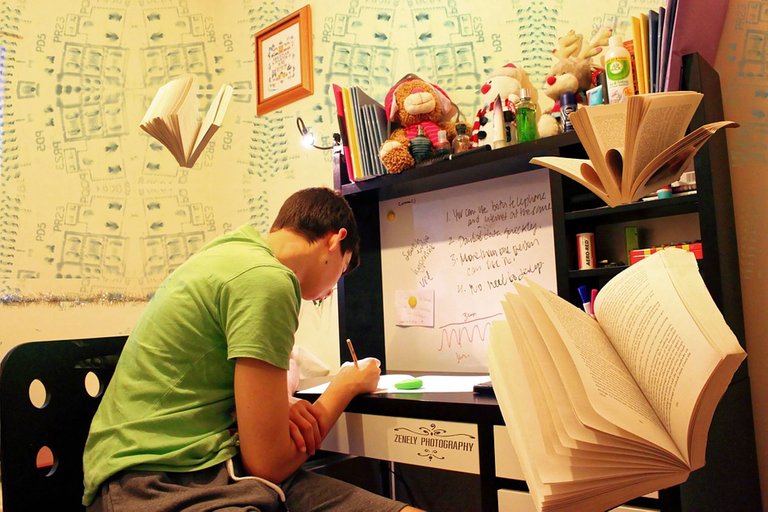Hi everyone. I did take a bit of a break from posting and blogging here. It is a combination of me taking a break, me not having ideas for posts and a bit of procrastination & laziness.
In this post I would like to put my thoughts on student effort for elementary and high school students. I did type this out kind of fast offline over two days. Things in this post may not make sense.

Topics
- Homework For Practicing Skills
- Student Comfort Zones
- Low Grades From Low Effort
- Students With The Desire To Succeed
Homework For Practicing Skills
Homework is a bit of a controversial subject for many. A large handful of students would prefer play over work but homework is a necessary task in order to practice skills, gain knowledge and for reinforcing concepts learned from school. Learning is not just limited to the time spent in the classroom. A good bulk of the learning occurs when doing homework. There is a bit of learning through self-study, independent work and from discovery.
It does take a bit of discipline, effort and will power to do homework. There are times when the homework is not really fun or the work is long or annoying. The work has to be done in order to receive a good grade if the homework is graded. When it comes to homework as study preparations homework is important as it is better to practice while doing homework before a test versus practicing during the test. This is something I found out from a math Youtube video. It may have been the Youtube MathDoctorBob.

Student Comfort Zones
According to the Cambridge online dictionary a comfort zone is a situation in which you feel comfortable and in which your ability and determination are not being tested. There are students out there that are in their comfort zones and do not want to reach new levels in their knowledge and/or ability.
In my work in the educational services sector, there is a student who is not interested in doing division with remainder. The numbers for this division are not big numbers. Examples include 36 divided by 5 is 7 with a remainder of one and 72 divided by 8 is eight with a remainder of six. This student does know her division if you present division as reverse multiplication. Something like seven times something gives 42. The something here is six as seven times six is 42. This student is comfortable for the most part with multiplication but shows resistance to division with remainder. She would rather do work that is familiar and easy instead of trying to learn new topics in her grade. As an educator the goal is to help the student get better in mathematics instead of making the work easier. When the work gets harder the student has to get better to meet learning objectives. This is not just in mathematics but in all subjects and in life in general.

Low Grades From Low Effort
The topics of grades can be complicated. Grades can be from tests, assignments, project, group work and so on. There are cases where bad grades can be given unfairly, the final exams can be unnecessarily hard which results in lower than expected grades. There is also grade inflation where higher grades are given but there was not much learning that was done. With this section, I would like to discuss grades from a student effort perspective.
Student effort comes in different forms. These include paying attention in class, doing homework, studying for tests, attention to detail in work, following instructions and so on. Some students do not put much effort in school for various reasons. School could not be a top priority, it could be laziness or it could be a lack of motivation in the form of "Why do I need to learn this?" or "When will I use this?`. Low effort and/or a lack of practice from homework generally leads to low grades.

Students With The Desire To Succeed
On the flip side, there are some students that do want to do well in school. These students may recognize that doing well in school can lead them to good universities/colleges which can lead them to good careers and a good life. The effort and motivation is higher than average with these type of students. If available, some of these students would be enrolled in advanced courses such as an enhanced math/science/English course, computer science courses in high school, Advanced Placement courses and/or International Baccalaureate (IB) courses in high school.
I would think that these type of students do limit their time with video games, Youtube binge watching, not being on TikTok often and other time-wasting activities. They can still have fun in their free time but they don't let the distractions get in the way of their educational goals and career goals.
There are a few cases where a student who used to not do much work in school may find motivation. One example would be finding out that you need some mathematics in order to be a doctor, pharmacist, engineer. The young student finds out about this and decides to try harder in mathematics.

@tipu curate
Upvoted 👌 (Mana: 0/48) Liquid rewards.